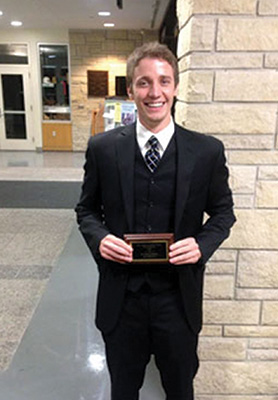 In a thoughtful article entitled ‘Understanding Generation Snowflake’, writer Carl Trueman reviews and dissects a book entitled I Find That Offensive. In the book, Claire Fox covers in-depth the present plight of many Western universities. She points out the weakness of modern day students and their need for “safe spaces,” while also identifying the significant changes in Western culture itself in the last few decades that have produced such a sensitive generation:
In a thoughtful article entitled ‘Understanding Generation Snowflake’, writer Carl Trueman reviews and dissects a book entitled I Find That Offensive. In the book, Claire Fox covers in-depth the present plight of many Western universities. She points out the weakness of modern day students and their need for “safe spaces,” while also identifying the significant changes in Western culture itself in the last few decades that have produced such a sensitive generation:
Fox’s basic thesis is this: the fear of free speech on university campuses and the concomitant culture of “safe spaces” is one result of a nexus of social, educational, and philosophical factors that have been transforming society since the 1970s. The primary responsibility for our current problems thus lies with people over forty, not with the students themselves. The problem is deeper and more significant than we might at first imagine. It is not simply the typical youth rebellion one expects on campuses but a sign of more notable changes in society as a whole.
Fox covers this topic in two parts: first, she identifies a “culture of catastrophe,” an upheaval in society’s understanding of human identity, and even seismic shifts in linguistics, as working together to instill a fear of free speech into this generation. Between anti-bullying campaigns, global health crises, and the constant streaming of sensational, traumatic news events, it’s no wonder that the modern generation is so paranoid as a whole. Second, she identifies significant changes in the role of the university itself in relation to its students, and criticizes the institutions themselves for, among other troubling changes, allowing education to replace intellectual debate with comfort zones. Universities are now a ‘home away from home,’ meaning they shelter students from any potential conflict.
Trueman, after giving his review, states that although a solid book, the book tragically falls short of the bigger issue.
In a final chapter, she directly addresses both Generation Snowflake and those who attack it, appealing for calm and reason in discussions as we move forward. Her appeal is moving and forthright, yet it is perhaps the weakest part of the book. It’s not that what she says does not make sense—it most certainly does—but that it underestimates the depth of the problem.
Trueman claims that in her appeal, Fox overlooks the most serious issue that bedevils calm discussion, or any meaningful discussion at all: a shared understanding of human identity as the foundational element of discourse. Underlying different approaches to solving societal problems, there must be a coherent, shared idea about what even constitutes a person. The incoherence of extreme individualism and moral relativism are simply unable to provide common ground on which to discuss our most pressing social challenges.
Trueman concludes his review by appealing to his reader to consider the sad situation in which society stands:
Fox’s book is a well-written, important, even brilliant contribution toward understanding the significance of current campus conflicts for society as a whole. Sadly, the picture she paints is bleaker than she herself ultimately realizes. Appealing for calm and self-critical reflection only works if such things are valued in the first place.
This “special snowflake” generation needs a vision of the human condition that rises above the muddled offerings of secular materialism and relativism.
This generation needs a purpose greater than that of vying for most victimized status. And they certainly need a higher vision of freedom than what extreme, self-centered autonomy offers.
The sooner Christians can begin to reintegrate the coherent, biblical vision for humanity into influential cultural institutions, including education and entertainment, the sooner we may elevate society’s vision for what human flourishing can look like and, God willing, lay the foundation for fruitful public discourse.



